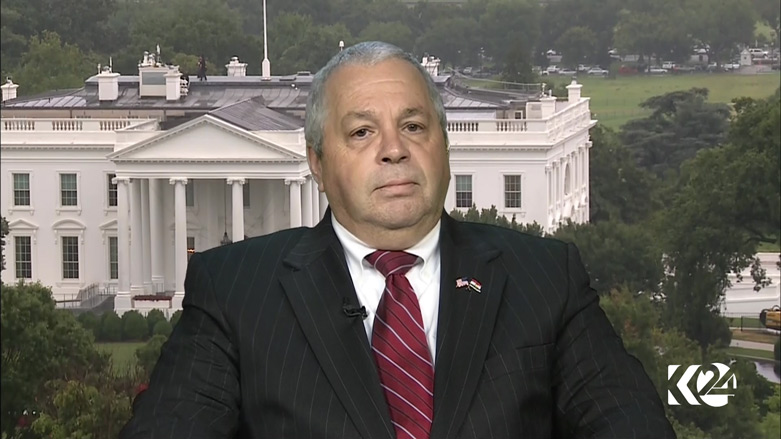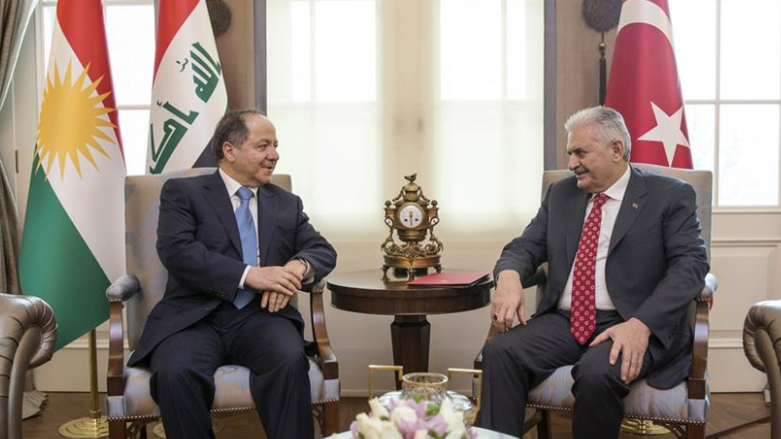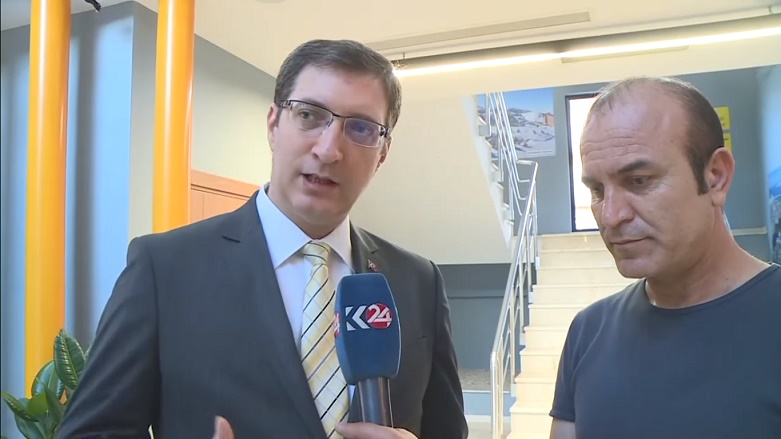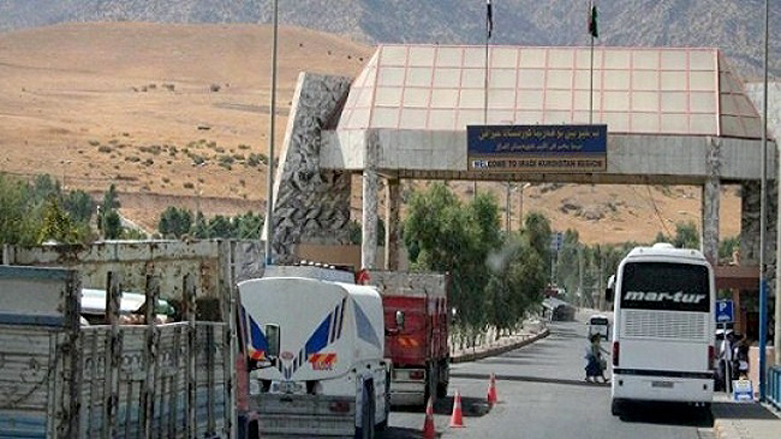Paul Davis: Pentagon and State Department disagree on Kurdish independence

WASHINGTON DC, United States (Kurdistan 24) – On Tuesday, Paul Davis, a former Pentagon analyst dealing with Kurdish affairs, stopped by Kurdistan 24’s Washington DC bureau to share his thoughts on the September 25 independence referendum and Kurdish independence in general.
Davis believes that the US should support an independent Kurdish state. That is “extremely important,” because the Kurdistan Region would be a stable state, friendly to the US, and only the second real democracy in the Middle East.
There is a big difference, however, between how the two US bureaucracies that are most involved—the State Department and the Defense Department—view this issue, Davis explained.
“The State Department, historically, has been opposed to any new nation, and this goes back quite a ways,” he said.
“The difference now,” Davis observed, “is that the Defense Department has more of a desire to see an independent Kurdistan. So they are arguing with the State Department.”
The disagreement between the two agencies will go to the White House to resolve, the former Pentagon analyst explained. “And we’ll see which side wins that argument.”
“The good news is that the US Congress, for the most part, is in favor of supporting an independent Kurdistan.”
Davis believes the Trump administration is significantly different from the Bush and Obama presidencies, both of which supported a unified Iraq, although the Obama administration was much more committed to that notion.
“I think that President Trump leans toward the Defense Department, and not the State Department,” he suggested.
In most cases, the Defense Department has little to say about whether the US should recognize the independence of any given country. However, the Kurdistan Region sits in the midst of a strategic and sensitive area, where the US has been involved in hostilities for many years—with no end in sight.
The Islamic State (IS) will not disappear, Davis explained, even after its so-called caliphate is defeated militarily. It will remain a threat, in an “al Qaeda mode,” carrying out terrorist attacks but without controlling territory.
Iran is also a major challenge, and a military base in the Kurdistan Region would allow US forces to confront both.
Davis hailed the positive qualities of the Kurdistan Region. “It is a tolerant area.” The religious extremism and anti-Americanism that exist in so much of the Middle East are largely absent from Kurdistan.
When President Masoud Barzani “speaks of a pluralistic society,” his language resonates with Americans.
“We’ve seen this in action,” Davis added. “After [IS] attacked, where did everyone go? They went to Kurdistan, and people welcomed them with open arms.”
Davis fully expects that the independence referendum will, indeed, be held on September 25, and the vote will be “overwhelmingly” in favor of independence.
“So what will the Kurdistan Regional Government (KRG) do on the 26th? ” he asks. “What will the US do?”
The KRG’s has said that after the referendum, it will negotiate with Baghdad. That will give the US and other concerned parties “breathing room” to consider what their response should be, in Davis view.
Davis likens the Kurdish push for independence to that of Israel nearly seventy years ago. The State Department then opposed independence for Israel, as it opposes independence for Kurdistan now.
President Harry Truman, however, chose to override the State Department’s advice (as well as that of the Joint Chiefs of Staff, who worried about access to Arab oil.) On the same day that Israel declared its independence, the US recognized the new Jewish state.
Davis believes that the Kurds need to prepare for a similar day, so when the KRG declares its independence, it has already lined up support from major powers. So far, Davis notes, Russia is the only major power that has said it will recognize an independent Kurdistan.
The US needs to take “serious consideration” of that point, Davis advised. “Do we want to be the Johnny-come-lately to recognize an independent Kurdistan?”
Davis also believes that Turkey’s opposition to independence for the Kurdistan Region is not implacable. He notes that on Foreign Minister Mevlut Cavusoglu’s recent trip to Erbil, the Minister affirmed that Turkey would not close its border with the Kurdistan Region because of the referendum.
And when the Kurdish President paid an official visit to Turkey earlier this year, the Turkish government flew the Kurdish flag at the airport and displayed it when Prime Minister Binali Yildirim met with him.
Editing by G.H. Renaud



